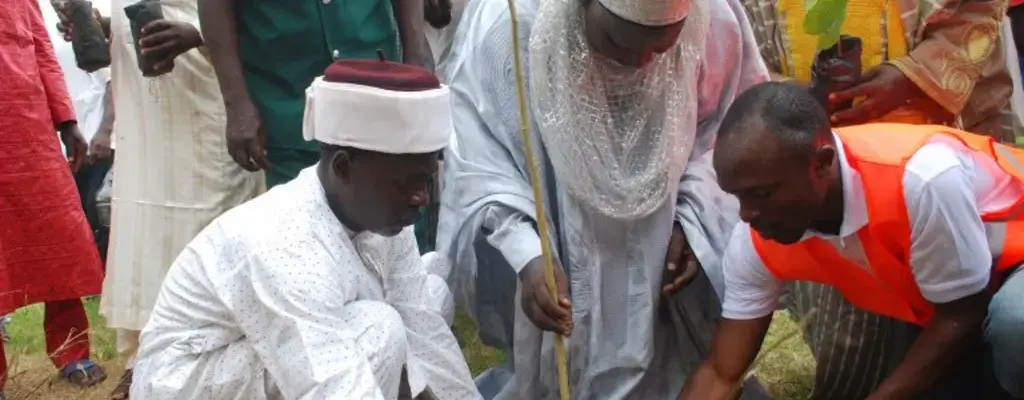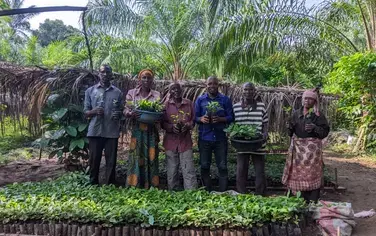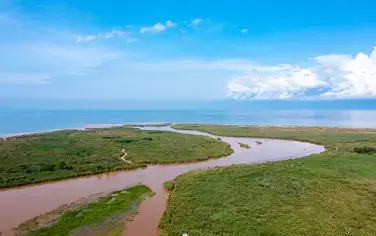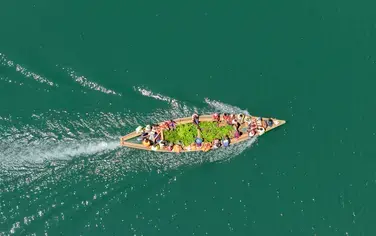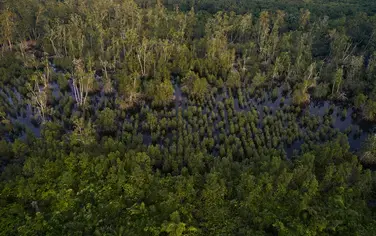The forest surrounding West Cameroon's Tonengai community suffered from degradation for many years. By 2010, this land was turning into a desert with only bare, dry land and invasive species. On top of years of severe wildfires and unsustainable grazing practices, trees were cut down to clear land for agriculture and to provide wood for household cooking and income generation. As a result, the land lost its fertility and the rich wildlife that inhabited this ecosystem disappeared. It also led to low agriculture yields, water shortages and the risk of extensive desertification. As a result, members of the local community abandoned the land and some migrated.
By 2012, One Billion Trees for Africa started a reforestation project to revive this degraded land as part of AFR100. The challenges were huge: The land was so dry that it was hard to dig holes to plant tree seedlings. Sinking wells to get groundwater for irrigation was also challenging, so seedlings had to be nurtured in a nursery for two years to grow roots that penetrated deeply into the soil. Protecting the young trees from destruction by wildfires and livestock grazing was also difficult. Innovative techniques to sustainably nurture the trees, though, ensured success.
By 2015, we planted and sustained over 100,000 trees. In the four years since, we continued to plant and regenerate the forest. Today, this forest has over 1 million trees, and we have restored over 77 hectares of degraded forest. By planting a combination of trees, including 70% native species, local people benefit from the food, medicine, animal fodder, and other ecosystem services that the forest provides. By providing green economic opportunities, members of the community are now returning and certifiably earning income from these resources. The revitalized forest has also improved the community’s capacity to adapt to the impacts of climate change.
